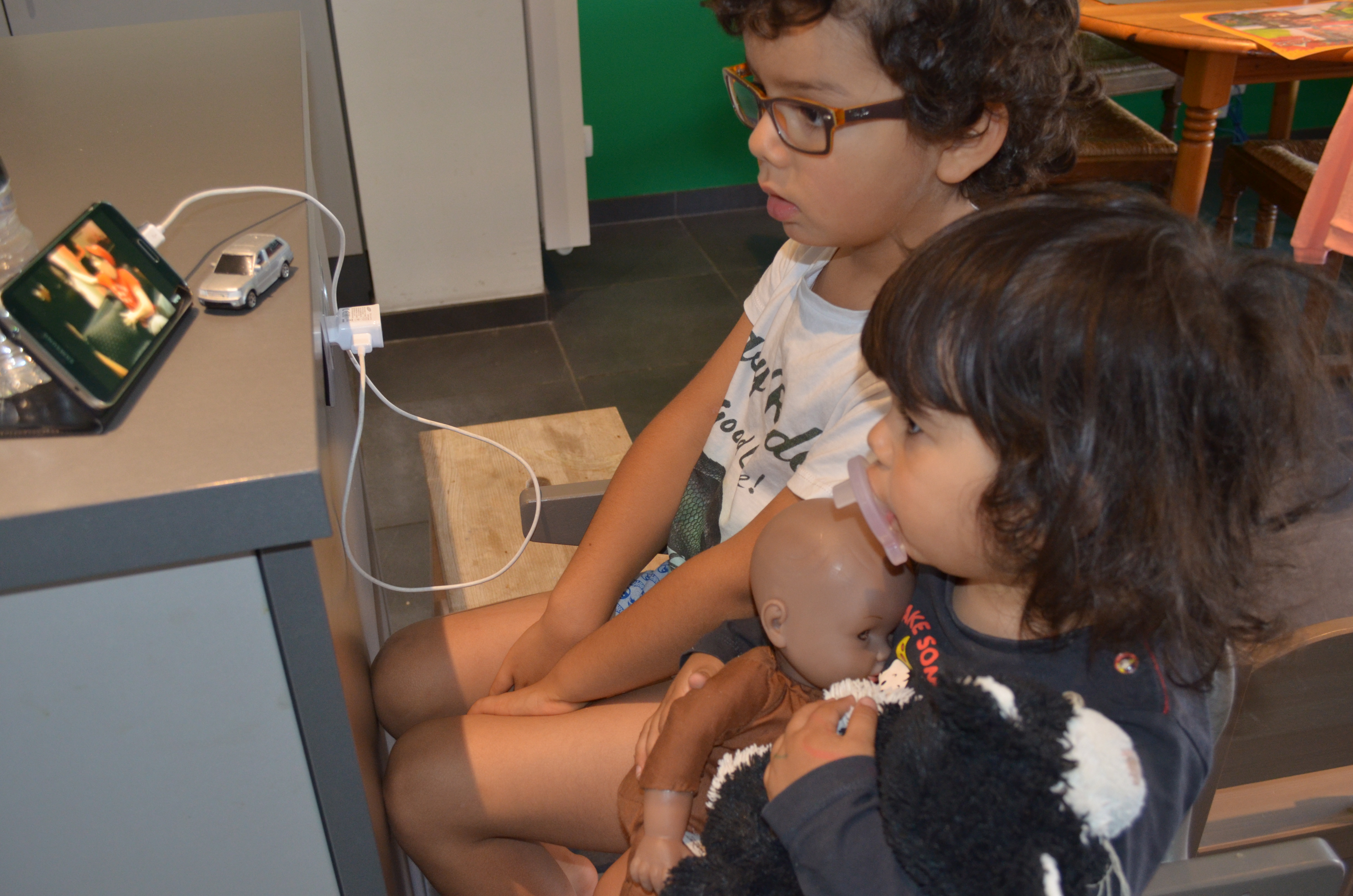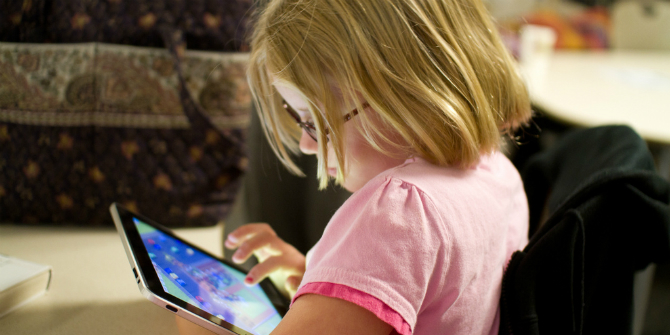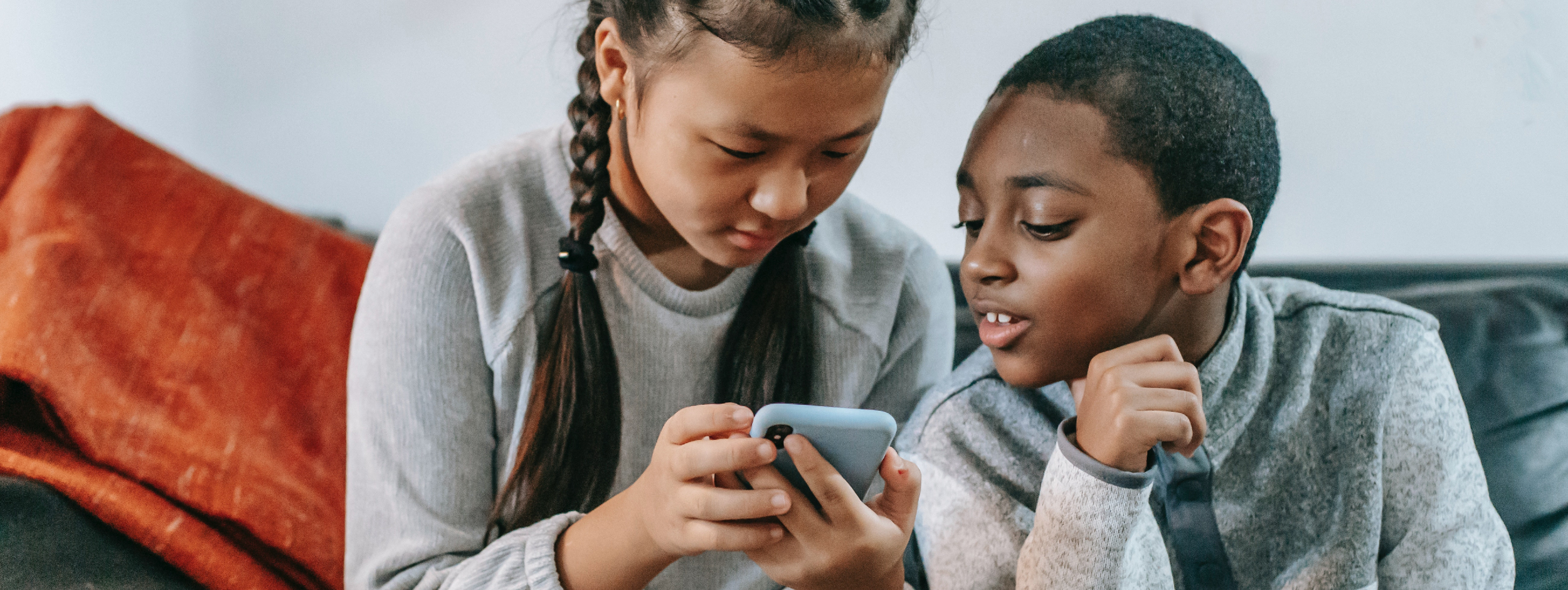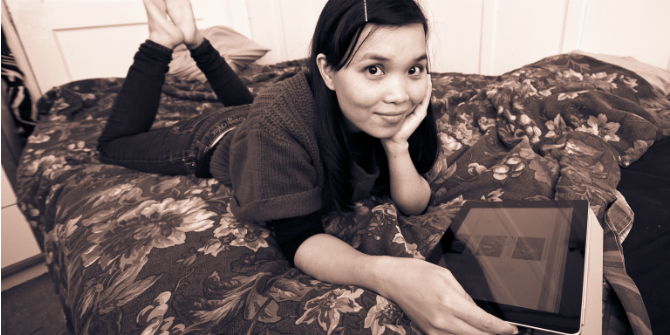 How do children encounter sexually explicit content online? In this post, Manuela Maiguashca discusses her findings through video interviews with young people. Manuela produces and directs documentary media projects that deal with taboo experiences, stigmatised communities and human rights issues. She runs media workshops as well as her own media workshop programme, Film Crew Club. In this blog she highlights the benefits of one media project, Friends Like Me. [Header image credit: Video still, Friends Like Me].
How do children encounter sexually explicit content online? In this post, Manuela Maiguashca discusses her findings through video interviews with young people. Manuela produces and directs documentary media projects that deal with taboo experiences, stigmatised communities and human rights issues. She runs media workshops as well as her own media workshop programme, Film Crew Club. In this blog she highlights the benefits of one media project, Friends Like Me. [Header image credit: Video still, Friends Like Me].
Digital storytelling
When I held a parent workshop focusing on social media at Amsterdam International Community School I asked parents to write on small cards what their biggest fears were about their children’s online screen lives – ‘porn’ and ‘grooming’ were on most cards. Many were concerned that they could not control or monitor their children’s online behaviour, and were afraid that their children would encounter sexual content or predatory online advances from strangers. Some felt that, even though they were tech-savvy, they weren’t up with the latest teen platforms or apps, and were unable to adequately assess the dangers that their children may be exposed to. Not all of them felt comfortable talking to their children about difficult (culturally taboo) topics like pornography or online ‘grooming’.
During the workshop, I screened material from a media project called Friends Like Me, where I interview 9- to 17-year-olds talking about their screen lives. They share what they love about their online lives, voice their fears, vent their frustrations and offer messages to parents. The film clips focused specifically on the parents’ top concerns, with the children talking candidly about the different ways in which they encountered sexually explicit content online:
- Direct exposure: the children describe their early encounters with online porn through clickbait, social media feeds, friends or ‘word of mouth’. The clips also include experiences of older men attempting to make contact with young girls online.
- Sexualised culture: the girls express their unease with over-sexualised imagery often found in online games and music videos.
- Fandoms: the teenage girls explain how they encounter sexually explicit fanart by participating in fandoms.
- Messages to parents: the children and teens offer advice to parents about the best ways to approach conversations with them.
Friends Like Me grew out of my experiences as a media mentor working with young children and teens over the course of a decade. It aimed to address a ‘gap’ in communication between parents and children over digital habits and experiences. As a mediamaker, I have learned how digital storytelling can be a powerful tool to help young people build self-confidence, learn about sexual and reproductive health and encourage conversations around sensitive and taboo topics like sex.
This is why I began documenting young people with whom I had built long-term relationships. Parents of participants were curious to hear what their children would say.
The children and teens’ main concerns
- The children don’t like seeing porn early (seeing porn early, without explanation made the children more likely to feel scared and vulnerable.) reactions range from confusion and anger to fear.
- Some children and younger teenagers feel that they have ‘broken the rules’ and will be punished by parents or teachers.
- Some feel judged by parents, and will therefore not tell them if they have been exposed to something disturbing online.
- Most of the children as well as early teens want parents to explain sex to them at a much earlier age.
- The teenagers describe how the boundaries between porn and mainstream media content are very fluid – you could love a mainstream book series like Harry Potter and then easily be exposed to sexually explicit #fanart created around characters from that book series.
- Teenagers want parents to ‘touch base’ with them more often, creating opportunities for safe, open conversations.
Engaging parents
Friends Like Me is designed to look like a colourful Rubik’s cube: small units that can be playfully arranged in many configurations. Clips are about 1 to 2 minutes each, and deal with one issue. They can be linked to other similar clips to create flexible playlists that enable specific themes to be explored. This modular media can also be repurposed for different platforms, and is easily shared on social media.
Although the project is in its early stages, I have always thought of it as a ‘contact intervention’ to help parents and young people begin a conversation about topics that might be awkward, embarrassing or ‘taboo’. Watching the clips may help parents gain greater insight into some of the issues young people are grappling with, better preparing them to engage more effectively with their children when in face-to-face conversations.
Parents and children reflect on the content in the film clip instead of on each other. The messages from teenagers also help parents to understand what attitudes typically shut down conversations, and reassure parents that their children fundamentally want to talk.
Developing the Friends Like Me project is giving me a deeper appreciation for the complexity of these young people’s lives, and the ways in which online and offline worlds can harmoniously connect, seriously diverge or sometimes, explosively collide. Interviewing them has shattered any stereotypes I’ve encountered of a generation of illiterate, vapid, pouting, screen addicts who need 24/7 surveillance to protect them from online predators as well as from themselves
I hope that this work can help to inspire parents to connect with their children from a place of acceptance and curiosity.
For more videos, go to Friends Like Me Vimeo, or follow the project via Facebook and Twitter.
Notes
The children featured in the videos have selected pseudonyms for the purpose of protecting their identities when sharing the interviews online.
This post gives the views of the authors and does not represent the position of the LSE Parenting for a Digital Future blog, nor of the London School of Economics and Political Science.





